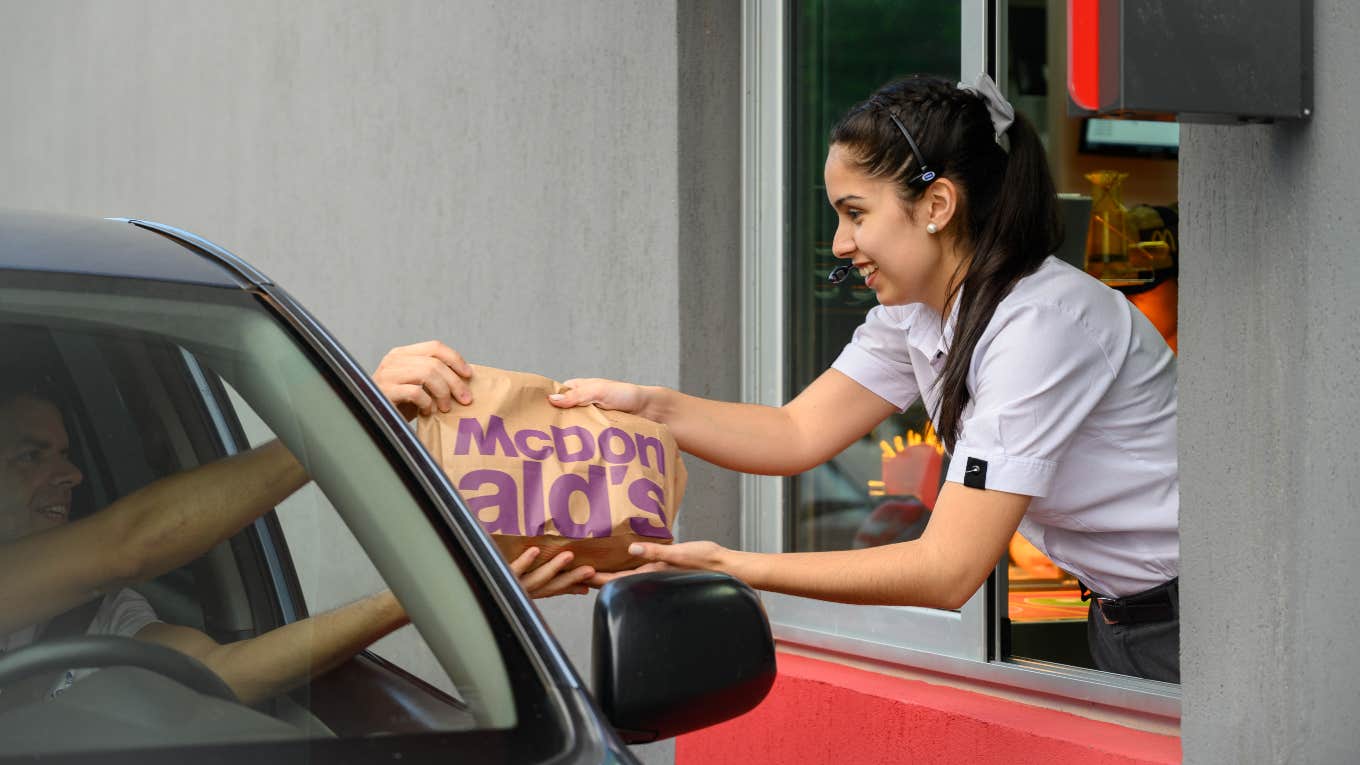Walmart & McDonald's Want Employees To Get College Credit For What They Learn On The Job
It's long past time to redefine what counts as valuable experience.
 Orlando Arce / Shutterstock
Orlando Arce / Shutterstock Between the number of people getting college degrees nowadays, the soaring tuition to get them, a punishing job market, and stubborn wage stagnation, experts have found that the value of a college degree has been declining for years.
It's never been a fair system to begin with — there are certain skills that no amount of schooling can actually teach. And two iconic American brands are aiming to bridge this gap by changing the definition of what constitutes "experience."
Companies like Walmart and McDonald's want their employees to get college credit for working.
Walmart was one of a handful of companies, along with Bank of America, Google and others, who announced in 2023 that they will no longer be requiring degrees for certain corporate positions as a way to level the playing field and capitalize on workers who might have valuable skills not reflected in a diploma.
Those moves were met with a fair amount of skepticism — a requirement being dropped doesn't stop a company from only hiring elite college graduates, of course. But some companies, Walmart among them, seem to have taken this looser approach to degree credentials up a notch, by making certain job positions count toward college degree credits.
Other major brands, like McDonald's, are following suit.
Walmart and McDonald's are offering college credits in their respective fields, similar to how corporations provide college credit for training.
What Walmart and McDonald's are trying to do isn't exactly new. American universities have long granted credits toward college coursework in business classes, for example, for workers who've completed corporate training at companies like Google, IBM, or Microsoft.
But when it comes to jobs at Walmart or McDonald's, the perception has long been that these jobs are menial and unskilled — these are positions for teens or the elderly, and especially the poor and uneducated.
There's never been any truth to this, of course. The jobs may attract certain demographics, but managing a retail store requires everything from HR to accounting skills. Working at McDonald's requires food safety and sales knowledge. Shouldn't this count?
Both companies and a growing number of others say yes, and universities are following suit. Walmart has several certificate and training programs in everything from tech skills to leadership that translate to college credits at some universities.
One Walmart employee, Bonnie Boop, spoke to NPR about the company's program. She described logging into her school portal and finding she'd been removed from her upcoming business operations class because it was determined she'd already covered the coursework at her job at Walmart.
McDonald's is building a similar program that would translate food safety and customer service work into credit toward degrees in culinary arts, hospitality, or the insurance field.
Experts say this not only levels the playing field but can also help some workers think bigger about their careers.
The programs that Walmart, McDonald's, and other companies like Jiffy Lube are implementing are potential game changers for employees working their way through school.
In the case of Boop, her credits added up to two entire courses, which, at the pace at which she's pursuing her degree, means two entire semesters knocked off her timeline — an entire year of study and tons of tuition money.
But experts say these programs can also get workers to think of their careers differently. Amber Garrison Duncan, who runs the non-profit Competency-Based Education Network, told NPR, "For adults who feel like they weren’t college material, what we are able to do is say, ‘You are. And you’re doing college-level work already.'"
Corporations like Walmart also say it helps foster a pipeline of professionals that can move into open corporate positions, rather than having to cast a net into the job-applicant pool and hope a degree translates to the right skills.
It's too soon to tell if programs like these are changing things. But for workers who've not only been priced out of certain dreams but socialized out of them by being told they're not up to snuff, these programs can add up to a cheaper, faster, and more inclusive path to career goals.
John Sundholm is a news and entertainment writer who covers pop culture, social justice, and human interest topics.

